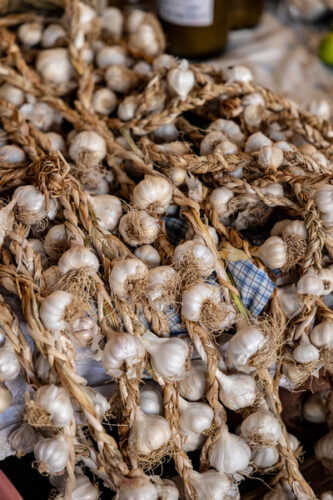In Tanzania’s Manyara Region, garlic farmers are proving that simple, well-timed post-harvest practices can make all the difference between profit and loss, with support from the MVIWAMA (Mtandao wa Vikundi vya Wakulima na Wafugaji wa Mkoa wa Manyara) and broadcast in Swahili on Habari Njema Radio 87.5 FM, this radio programme is part of the YenKasa Africa Radio Initiative, dedicated to amplifying rural voices and sharing practical farming solutions.
This episode spotlights how farmers in Bashay, Mbulu District, are mastering post-harvest handling to protect the quality and market value of their garlic produce.
From Field to Storage: What Farmers Are Doing Right
A local garlic farmer, Mary James, has learned that harvesting at just the right moment is crucial. If pulled too early or handled carelessly, the garlic spoils quickly. Instead, Mary lets the garlic mature fully and begins the process with care because she knows how it’s dealt with after harvest, which determines how much she’ll earn at market.
Then there’s Mr. Damiano, another experienced producer, who cures his garlic in a clean, dry, and well-ventilated space. “Don’t rush,” he advises, “or you’ll end up with rot.” His method may be simple, but the impact is powerful: longer shelf life and better quality garlic that stands out in the marketplace.
Expert Tips That Make a Difference
An agricultural officer from the Mbulu District Council joins the broadcast to break down the essential post-harvest steps for every garlic grower. The officer detailed the signs of garlic maturity and offered step-by-step guidance on harvesting and storage procedures. Recommendations included watering the field before harvesting, distinguishing between storage methods, and ensuring proper ventilation and periodic garlic turning to maintain quality.
These straightforward steps are already helping smallholder farmers reduce losses and maintain high-quality produce, making garlic farming more profitable and sustainable.
Why This Matters
Garlic is more than just a flavourful kitchen staple, it’s a promising cash crop for rural Tanzanian farmers. But without proper handling, much of its value is lost before it ever reaches the market.
This radio programme is a game-changer. It blends farmer experience and expert advice in a format that is accessible, relatable, and immediately useful. By adopting these best practices, farmers are
- Reducing post-harvest spoilage
- Improving income
- Gaining access to higher-value markets

